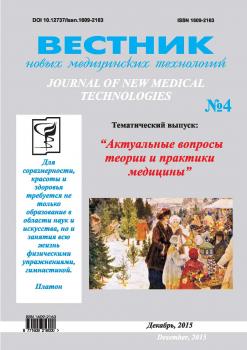The purpose of the study was to assess the role of arterial hypertension (AH) in the development of immunization in women with Rh-negative blood to optimize perinatal outcomes. Subject and methods. A prospective comparatively study was conducted in 3 groups of pregnant women with Rh-negative blood. The 1-st group (n=148) was with hypertensive disease (HD), the 2-nd group (n=144) - with gestational arterial hypertension (GAH); the 3-rd group (n=110) - without somatic pathology. The immune-hematological studies included a definition of the partial D antigen using gel method. Results. It was definited that the pregnancy of these patients accompanied by the high frequency of early gestational toxicosis, threatened premature birth, preeclampsia, placental insufficiency as well as expressed changes immu-nological properties of blood, which are pathogenetic basis of fetal and neonatal rhesus hemolytic disease. Antibodies (AB) in the blood serum of patients with hypertension were detected in the first half of pregnancy (up to 20 weeks) in 1.2-1.4 times more often than in healthy women, high titer of AB rate in patients with HD was significantly higher compared to other groups. Disadvantageous combination of immunoglobulins subclasses Gl and G3 was found in the group of pregnant women with HD (11.4%) and GAH (10,8%), significantly less frequently (6,45%) in the control group. Conclusion. To improve maternal, fetal and neonatal gestation outcomes the authors justified the necessity of prenatal work-up and delivery of these women.
arterial hypertension, gestational arterial hypertension, Rh-negative blood, pregnancy.
Несмотря на усилия ученых, врачей и административных органов различного уровня, артериальная гипертония (АГ) в Российской Федерации остается одной из наиболее значимых медико-социальных проблем [5]. Это обусловлено широким распространением данного заболевания, особенно по мере увеличения возраста пациенток (среди беременных в возрасте 18-29 лет хроническая АГ наблюдается у 0,6-2% женщин, а в возрасте 30-39 лет - у 6-22,3% [2,5-8,12]. Беременность предъявляет повышенные требования к организму женщины. АГ оказывает негативное влияние на состояние маточно-плацентарных взаимоотношений, что может привести и к вторичным нарушениям иммуносупрессивных свойств плаценты [9]. В таком случае у женщин с Rh(-) принадлежностью крови это создаст условия для резус-сенсибилизации и развитию гемолитической болезни плода. В последние годы придается значение определению не только титра, но и подклассов анти D-антител (IgG). Так, исследования Коноплянникова А.Г. (2009) подтвердили, что в прогнозировании тяжелых форм гемолитической болезни плода и новорожденного (ГБПиН) при резус-сенсибилизации следует руководствоваться значениями не только титра антител но и подклассов IgG,





